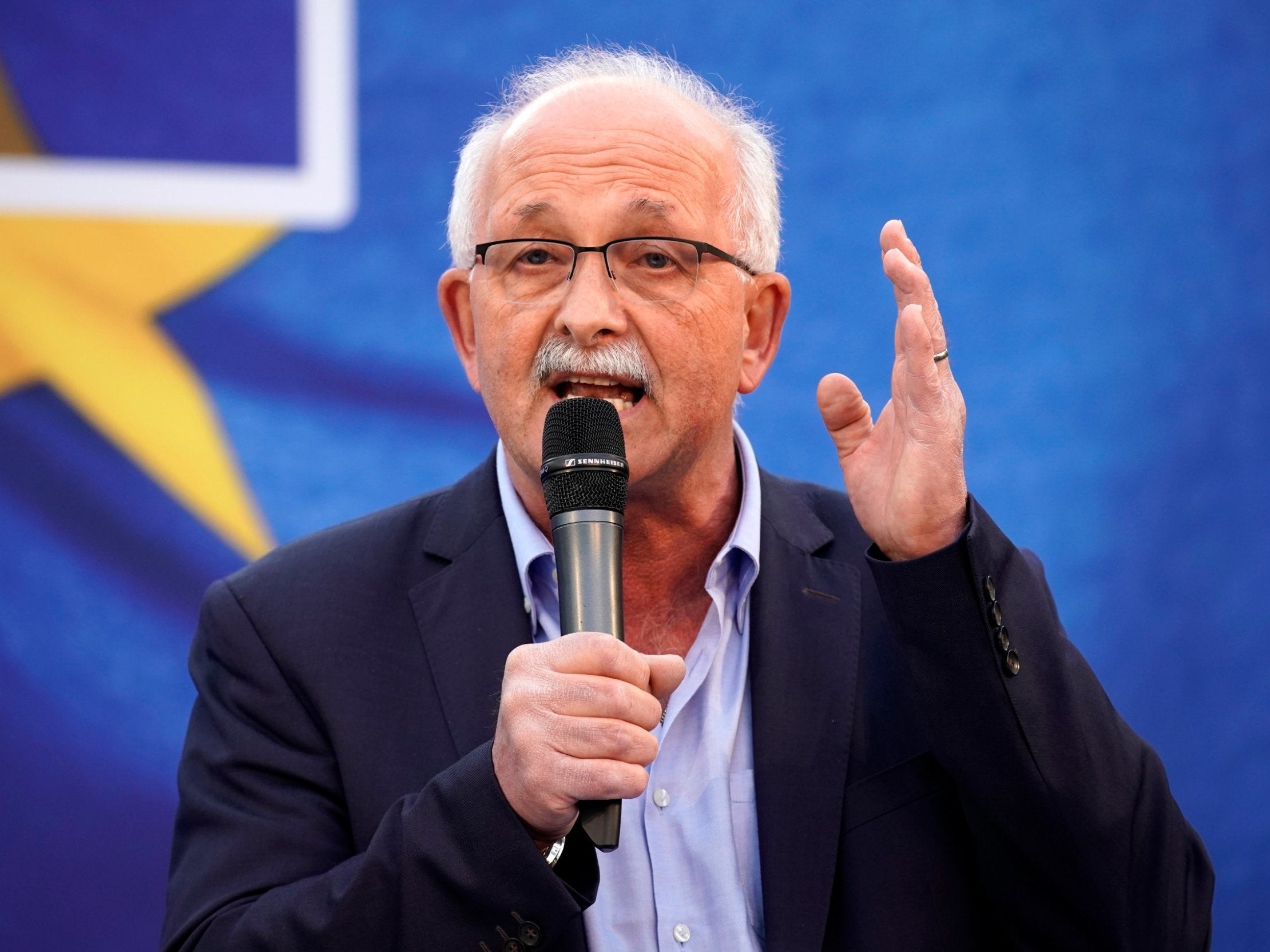Socialists plan EU-wide minimum wage if they win control of European Commission
Control of the European Commission is in the grasp of the continent’s centre-left for the first time in decades

Your support helps us to tell the story
From reproductive rights to climate change to Big Tech, The Independent is on the ground when the story is developing. Whether it's investigating the financials of Elon Musk's pro-Trump PAC or producing our latest documentary, 'The A Word', which shines a light on the American women fighting for reproductive rights, we know how important it is to parse out the facts from the messaging.
At such a critical moment in US history, we need reporters on the ground. Your donation allows us to keep sending journalists to speak to both sides of the story.
The Independent is trusted by Americans across the entire political spectrum. And unlike many other quality news outlets, we choose not to lock Americans out of our reporting and analysis with paywalls. We believe quality journalism should be available to everyone, paid for by those who can afford it.
Your support makes all the difference.The EU’s centre-left is planning to introduce a continent-wide minimum wage to correct the bloc’s “neoliberal failures” if it wins control of the European Commission after this month’s elections.
The socialist group, in which the UK Labour Party sits, could capture the commission presidency for the first time in decades, with Dutch social democrat Frans Timmermans as its candidate to replace Jean-Claude Juncker.
With Brexit delayed the UK is set to participate in the elections on 23 May – and with a strong showing expected for Labour, it could be British MEPs that take the socialists over the line to be the biggest group in the European parliament.
Udo Bullmann, leader of the parliament’s socialist group, told The Independent that the new EU-wide minimum wage should be set at around 60 per cent of the average salary in each member state.
“It’s a European-wide system of minimum wage we are out for; it’s one of our cornerstones. We think that that should happen in all our member states, but not any minimum wage: we are talking about 60 per cent of the average wage as a target, criteria for a European-wide system,” he said.
Mr Bullmann, a German social democrat, said he believed Brexit should be regarded as “a huge mistake for many generations” and “a disaster”.
“If you go to the root causes of Brexit, you can see it in France, even in Germany: the growth of the right wing is directly connected with inequality,” he said, arguing that the scapegoating of migrants for falling standards of living was “a bloody lie”.
Crucially, the minimum-wage plan also has the backing of French president Emmanuel Macron, who included a similar proposal in his manifesto to renew the EU unveiled in March this year. Jeremy Corbyn also suggested such a plan during the EU referendum in 2016, arguing that it would give British workers a “level playing field” across the continent. Labour on Saturday announced it would extend its policy for a £10 UK minimum wage to under-18s, arguing that the policy would be “nothing less than life-changing”.
On Brexit, Mr Bullmann has long backed a Final Say referendum, arguing as early as last October that the British public “deserve to have a Final Say on their future”.

He would not be drawn on Labour’s referendum policy, but said: “I’m not in a position to come forward with recommendations for an independent Labour Party, whose members I like ... but in my personal opinion, if you asked me as a citizen as the UK, I would insist on having a say now, because the politics is blocked in Westminster and obviously when people see the real price of a wrong decision they should be asked again.”
He added: “Unlike the government in the UK, Jeremy Corbyn presented a match plan saying the customs union is the minimum we have to achieve, as well as the continuation of labour and social rights, and environmental law that we’ve achieved in the European Union. That is for me an understandable point: though I’ve never become a Brexiteer.”
Mr Bullmann will becoming to London on Monday to launch the findings of the Independent Commission on Sustainable Equality at the London School of Economics.
The report, drawn up by academics from across the continent, will offer policy solutions to addressing the crises Europe faces – which it defines as environmental, economic, and political.
Under the EU’s so-called “Spitzen candidate” system the lead candidate of the European parliament group that wins the EU elections should become commission president, as long as they can win the endorsement of member state leaders.
However, it is unclear whether the system, which was only introduced in 2014 and used once to elect Jean-Claude Juncker, will be respected by member states, who legally get to pick the next commission president under the EU’s treaties. The leaders are due to meet for a summit on Tuesday 28 May, two days after the election results, to discuss the next commission.
Join our commenting forum
Join thought-provoking conversations, follow other Independent readers and see their replies
Comments